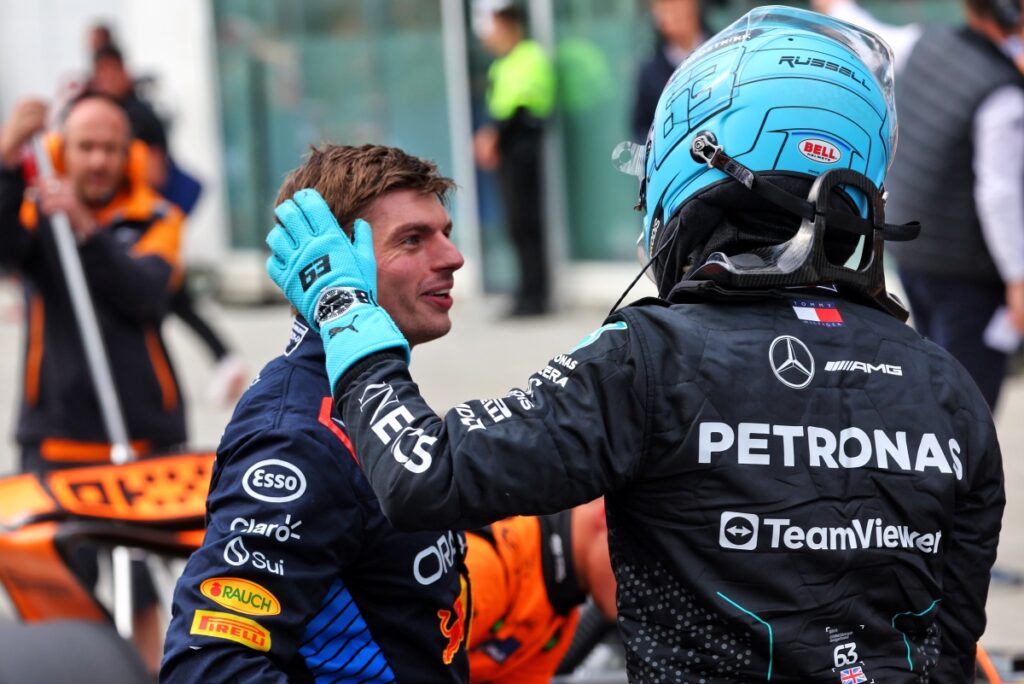Max Verstappen's Riveting Confession: Did Red Bull's F1 Performance Get Unfairly Boosted at the Canadian Grand Prix?

The world of Formula 1 is no stranger to surprises, and the Canadian Grand Prix served up a fascinating narrative that has fans and pundits talking. Max Verstappen, fresh off a fierce qualifying showdown with Mercedes' George Russell, has revealed insights that shed new light on Red Bull's pace in Montreal.

Dead Heat with Russell: A Masked Reality?
Verstappen matched Russell's pole position time down to the thousandth of a second during Q3. This performance initially seemed like a testament to Red Bull’s competitiveness. However, Verstappen has subtly hinted that this apparent parity may have flattered Red Bull. Specifically, he pointed out that Russell’s pole time was slower than Lewis Hamilton's Q2 benchmark lap, potentially hiding Mercedes' true pace.
“Yeah, I mean, in general, I think it wasn’t a bad qualifying,” Verstappen noted, reflecting on the session. He admitted that Q3 was probably the weakest for Mercedes, and underlined that while tying Russell was impressive, it may not have reflected the true hierarchy on the grid. Verstappen’s nuanced understanding of the session suggests a more complex competitive landscape than the timesheets revealed.
Weather Woes and Mechanical Mishaps
The changing weather conditions also threw a spanner in the works. The sporadic rain affected the competitive balance on the circuit, making it tricky for drivers to find consistent grip. Verstappen's comments hinted that this precipitated some of the unexpected results seen throughout the session.
Verstappen also highlighted mechanical issues that plagued Red Bull's garage. An electrical glitch in FP2 forced him to revert to an older engine setup, costing valuable track time. “But yeah, I mean, I think overall, just the weekend was again a bit messy from our side, just too many little issues,” commented Verstappen, emphasizing the impact of these setbacks on the team’s performance.
Mastering the Circuit Gilles Villeneuve
Despite expectations that Red Bull’s issues with kerb-riding from Monaco would recur at the Circuit Gilles Villeneuve, the more open layout was somewhat forgiving. Verstappen regarded his second-place finish as “damage limitation,” considering the ongoing struggles with the car’s balance. The Dutchman shared, “We’re still struggling with the same things, but of course, the track layout helps compared to Monaco.”
He noted that while Montreal’s track featured sections requiring adept kerb-handling, the overall track was less punishing on Red Bull’s vulnerabilities. Finishing second was thus a commendable achievement in Verstappen’s eyes, given the circumstances.
Mercedes Magic and a Tight Grid
Verstappen wasn’t taken aback by Mercedes' prowess, acknowledging that such surprises have become the norm in F1's tightly contested grid. Citing Ferrari’s unexpected double exit in Q2 as an example, he emphasized how minute advantages or setbacks can dramatically shape outcomes in the current competitive climate. “I think in general, when you look at the whole grid, there are quite a few surprises, like good surprises and bad surprises,” he explained.
The narrow margins between teams underscore the role of car understanding and strategic finesse in clinching top positions. Verstappen's observations hint at a thrilling season ahead, where every race could bring unforeseen twists and turns, making Formula 1 all the more exhilarating for the fans.
With these insights, it's clear that while the Canadian Grand Prix ended in a dead heat, the undercurrents of competition were anything but still. Verstappen’s remarks not only provide a deeper understanding of Red Bull's standing but also paint an exciting picture of the battles yet to come.